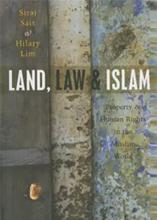Land Library Search
Through our robust search engine, you can search for any item of the over 73,000 highly curated resources in the Land Library.
If you would like to find an overview of what is possible, feel free to peruse the Search Guide.
/ library resources
Showing items 1 through 9 of 16.This paper provides an analysis of the effectiveness and equitability of West African judicial, legal and administrative institutions for:providing accessible dispute resolutionprotecting the security of the urban and rural poor to hold and use land.The authors compare legislation of customary an
The Katkari are classified as a Primitive Tribal Group with specific measures for legal protection of their rights, and there are provisions in the Integrated Tribal Development Project (ITDP) to compensate land owners in cases of expropriation of land.
Towards the end of this assessment process, participants decided to present a land petition at the village assembly and with officials of the revenue department, in an attempt to broaden their network of support and draw attention to their rights.
The effect of prime-age adult death and its consequences on access to land for the survivors has not been fully explored nor incorporated into policy regardless the fact that high adult mortality is now the lived reality in countries affected by HIV/AIDS, particularly in Africa.
On the occasion of the International Year of Mountains-2002, FAO and its partners undertook a large-scale assessment and global review of the current status and future trends of integrated and participatory watershed management.
The study conducted by FAO and partners in South and Southeast Asia was based on an analysis of forest tenure according to two variables: the type of ownership, and the level of control of and access to resources.
Most of the world’s poor work in the “informal economy” – outside of recognized and enforceable rules. Thus, even though most have assets of some kind, they have no way to document their possessions because they lack formal access to legally recognized tools such as deeds, contracts and permits.
This case study looks at the land tenure in Namibia, where for a century of colonial rule indigenous Namibians were dispossessed from rights to both land and resources – by German and then white South African settlers establishing commercial farms and related businesses.
This book is a cross-cultural endeavour to promote global strategies for enhancing security of tenure in the Muslim world. It addresses the gap in both the human rights and Islamic literature on land and property issues.




